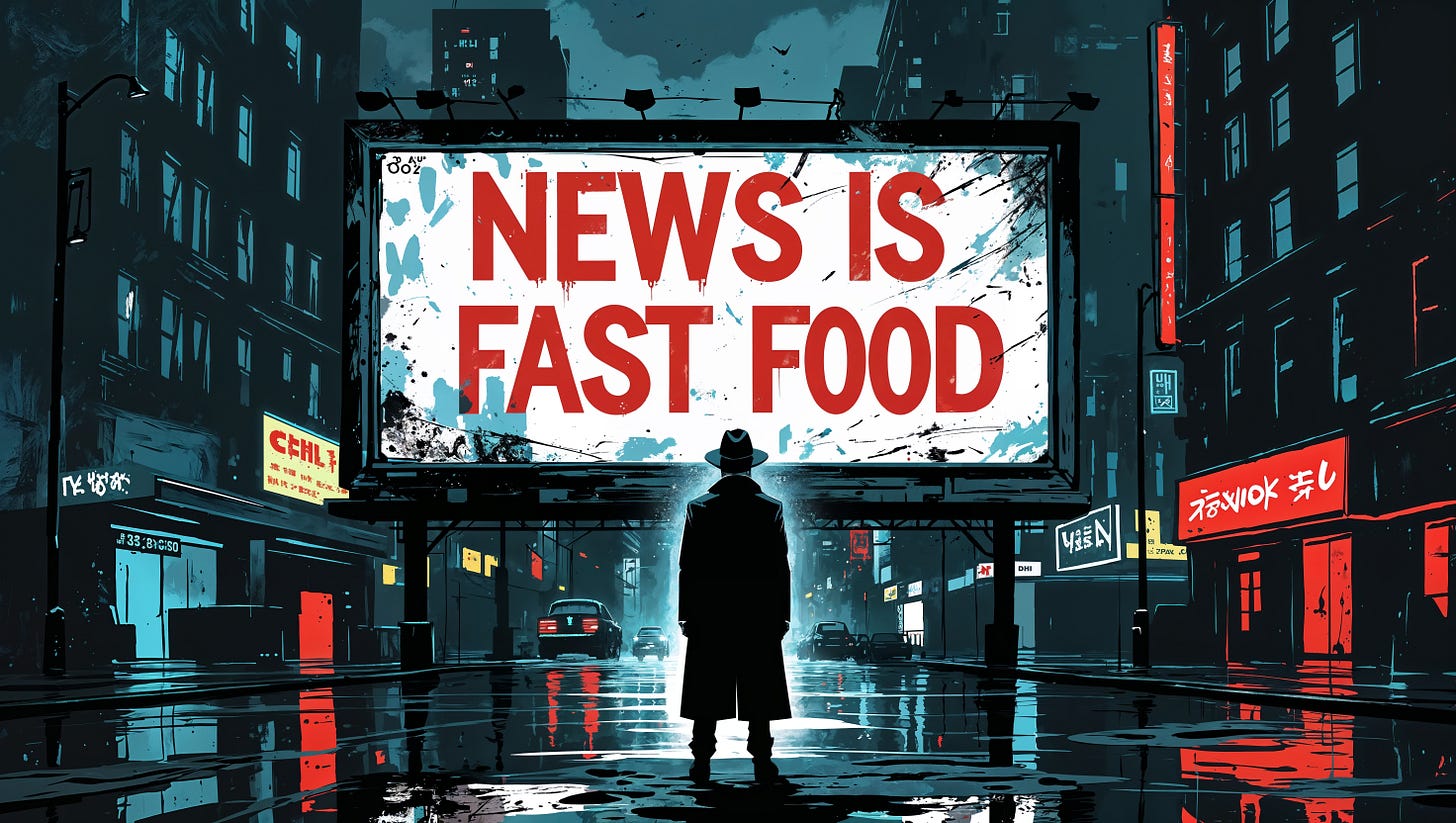News Is Fast Food. I Despise Both.
Experimental non-canon mini essay. Read it if you’re curious—skip otherwise :)
I’ve lived my whole life without seriously reading, watching, or listening to The News.
I’ve tried—really. Society kept nudging me to plug in. “You have to stay informed,” they said, as if it were a civic duty or moral law. But each time, I bounced off. Not out of resistance—just disinterest. It never lit anything up in me.
That surprises a lot of people.…



